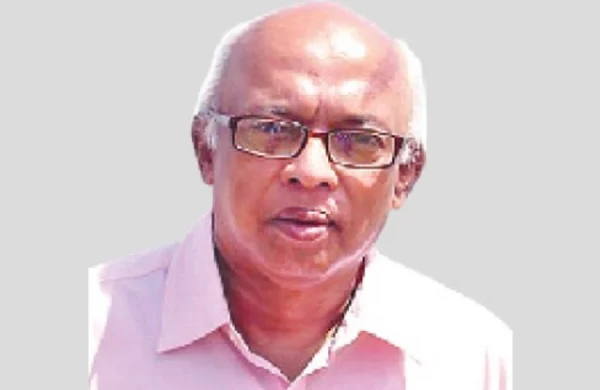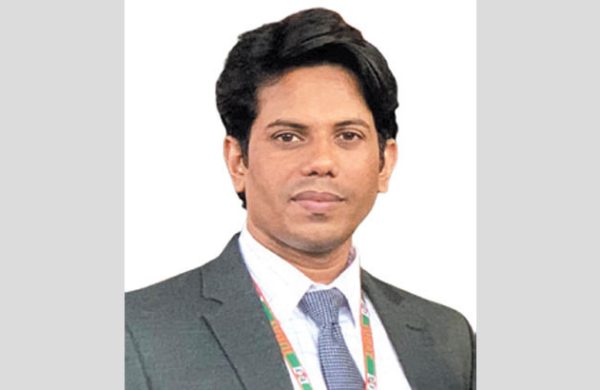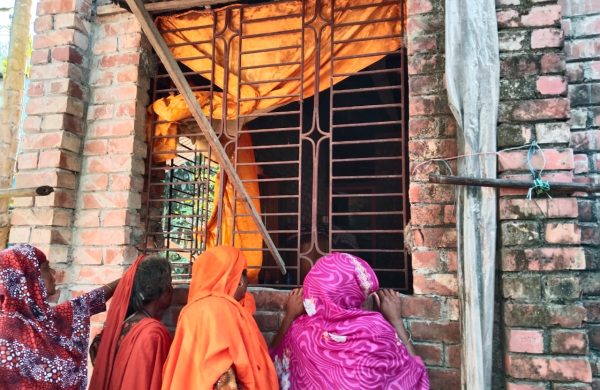Bold journalism will be the guarantor of accountability
- Update Time : Monday, June 24, 2024

—Syed Badrul Ahsan—
It is pretty strange that journalists are always being advised on how they must do their job. The common refrain is that they must do nothing that will tarnish the image of an organisation or a government institution or the state itself.
With serving police officers now coming forth with the warning that reporting on the corruption of some of their colleagues undermines the image of the law enforcers, we have a situation where once again journalists are threatened with punitive measures for drawing public attention to corruption in high places.
So what has the fault of the journalists been in these recent weeks? They have reported extensively on the unbridled accumulation of wealth by a former inspector general of police, who has meanwhile made it safely out of the country. They have drawn attention to the doings, or ill doings, of another lapsed police officer, who too appears to have left the country with his family.
And now there are new reports of yet one more police officer, this one still in service, coming by vast property the origins of which cannot ethically be explained.
Add to this sordid picture the story of the NBR official who has loudly protested that the young man who recently purchased a goat and some cows at exorbitant prices and whose story has been flashed all across social and the print media is not his son.
Our journalists have pursued and continue to pursue the story and are certain that the young man, who is no more than a student at a college, and the NBR official are closely related to each other. The media investigations of the scandal must go on in relentless manner.
So should Bangladesh’s media have stayed silent rather than focus on these gross instances of corruption? The country is being taken for a ride by the corrupt and their benefactors and yet journalists are being asked not to undermine the nation’s image by publicising such villainy.
Ah, but journalists in no part of the world undermine the state. What they do is draw public attention to the image of the state as and when this image is being tarnished by the powerful enjoying the blessings and patronage of the more powerful around them.
It is obvious that of late our journalists, across the profession, have been doing an excellent job digging out the ugly tales of malfeasance resorted to by the powerful and placing their findings before the nation.
Their reports have been shaming — or have they? — those who have been indulging in such corruption as also informing their political and administrative superiors that they have either failed to keep tabs on these corrupt or have looked the other way when these corrupt elements went around abusing the power and sanctity of their positions to deprive the state of the resources which are the property of the public and therefore of the republic.
But observe how it is still journalists who are regularly ‘enlightened’ by the powerful on how they should be going about their work. For years on end journalists have been advised by successive governments in the country to engage in constructive criticism of the issues confronting the nation. What exactly is constructive criticism? You either criticise or you don’t.
When politicians fail to perform or indulge in acts which militate against the oath they have taken under the constitution to serve the people, when government officials in every branch of administration stoop to the vile act of commandeering property that is plainly not theirs, it is expected that journalists will take them to task. They will criticise and condemn and excoriate these elements before the country.
Why does the adjective ‘constructive’ come here? Or are journalists expected to be polite towards the corrupt lest their exercise of professional integrity cause outrage in those caught in the act of purloining the resources of the state? At press conferences, journalists ask very valid, educated questions on such issues as politics, the budget, the state of the economy, et cetera.
All too often the answers they receive are either shallow or a hint of the failure on the part of those asked the questions to have been briefed earlier by their staff on the answers. And then there are the public figures who simply lose their temper and browbeat the journalists into silence for their ‘impertinence’ in asking the questions that call for credible responses.
Why have conditions come to such a pass? A goodly part of the fault lies with the journalist community itself, for over the decades journalists have moved increasingly and uncomfortably closer to suffocating political partisanship. Near emasculation has been the consequence. The journalist unions as they used to be are today a tale of the past; they border on irrelevance.
The unions are divided, disturbingly straddling the space between the nation’s political parties. Journalists of course have all the right in the world to subscribe to their individual political opinions, but when those opinions become indistinguishable from excessive loyalty to political parties, it is media professionalism which suffers grievously.
A divided media is an impotent media. When journalists become politicised, they turn at one point into people too happy to be seen in the company of the politically and administratively powerful. When a newspaper editor has a senior police officer grace a journalistic programme at his office as chief guest — and such an instance was observed at a leading newspaper office some years ago — it is a mark of the decline of the journalist.
It is time for journalists in Bangladesh to reinvent and reassert themselves, to go beyond their political partisanship, indeed do away with political sycophancy, and proceed into ceaseless and focused investigations of elements who have enriched themselves on wealth accumulated through crime and sin. It is time for all journalists in all unions and in all media establishments to come together and present a powerful and united stand before the robber barons who have been tarnishing the nation’s image through indulging without shame in grasping that which is not theirs.
In an era marked by a woeful absence of accountability and transparency and therefore of the rule of law, it is for journalism to operate as the guarantor of the public interest. In light of everything sinister happening in recent times, in light of the audacity of the powerful corrupt in keeping the nation hostage to their greed, the responsibility of Bangladesh’s journalists assumes a greater dimension.
Journalists must keep watch at airports, at the border, at sea ports to prevent the corrupt from fleeing the country as well as inform the nation of those facilitating the flight of these bad elements to foreign climes.
Bangladesh’s journalism will regain the high ground it once occupied when it convinces the country that it is not afraid of those who abuse power, of those who engage in thievery, of those who threaten to silence them. Assertive journalism is the national requirement in these times. Journalists must ask questions and keep asking them until they get proper and satisfactory responses.
For it is journalists who have it in them to defend, strengthen and uphold the institutions of the state when the institutions come under assault from the unscrupulous. Democracy will thrive in Bangladesh if and when journalism, through asserting itself, turns into a dire threat for those who would strip the state of its vitality through their dark and nefarious deeds.
_____________________________________
Syed Badrul Ahsan writes on politics, diplomacy and history



















